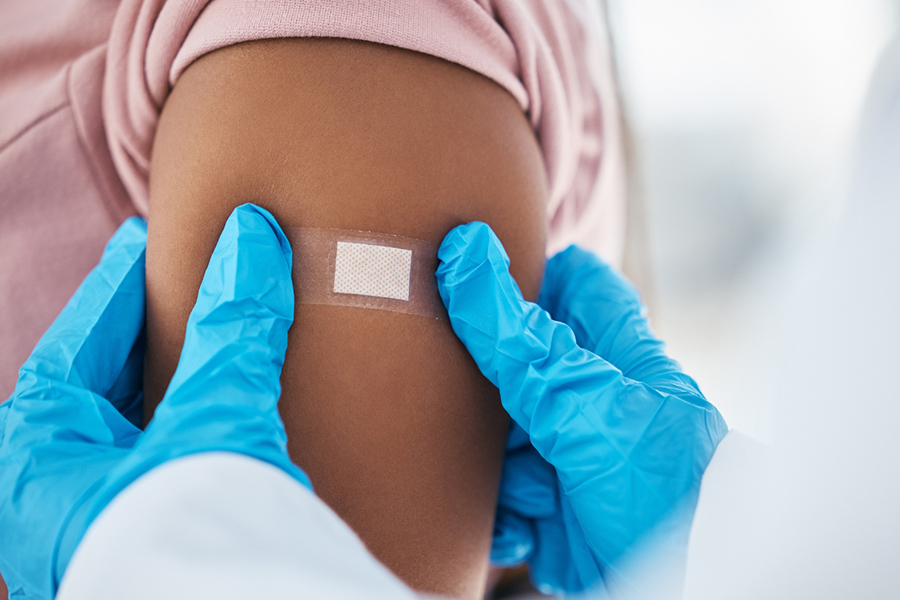Melanoma vaccine trial to start at UI

Trial will test whether a personalized mRNA vaccine combined with an immunotherapy prevents melanoma from recurring
By: Jennifer Brown
University of Iowa Health Care is among the first sites in the country to participate in a phase 3 clinical trial to test a new, personalized vaccine for patients with high-risk melanoma.
The study will combine individualized mRNA vaccines with the immunotherapy pembrolizumab to determine if the combination is safe and does a better job than pembrolizumab alone at preventing melanoma from returning in people with high-risk disease.
The first mRNA vaccines debuted in 2020 against COVID-19, but cancer researchers have also been studying how mRNA vaccines can be used to direct patients’ own immune systems to detect and target cancer cells.
A personalized vaccine tailored for each patient
A key feature of the new vaccines, developed by Moderna and Merck, is that they are tailored to target each patient’s unique tumor. The patient’s tumor is removed and sequenced, and the genetic information is used to create a personalized vaccine that can target multiple patient- and tumor-specific proteins. This individualized vaccine will prompt the patient’s own immune system to target tumor cells wherever they are in the patient's body.
The researchers hope the combination of the personalized vaccine with the pembrolizumab, which boosts the patient’s immune response, will prevent melanoma from returning.
“We are excited to be participating in this international clinical trial, which allows us to offer this innovative, personalized cancer vaccine to Iowa patients with advanced melanoma,” says Mohammed Milhem, MBBS, director of the Division of Hematology, Oncology, and Blood and Marrow Transplantation with UI Health Care, and the principal investigator for the UI site of the study.
Leadership in clinical trials for cancer vaccines
Across all its global sites, the new trial aims to enroll 1089 patients with stage IIB to IV melanoma who will have their tumor surgically removed.
“We were selected as a U.S. site for the trial based on our national research leadership in melanoma and cancer vaccines and our expertise in conducting successful clinical trials,” says Milhem, who is also director of the Melanoma Program at Holden Comprehensive Cancer Center.
Patients will receive up to nine doses of the individualized vaccine given along with pembrolizumab. The vaccine is reported to have minimal side effects, including mild aches, chills, and mild fever.
